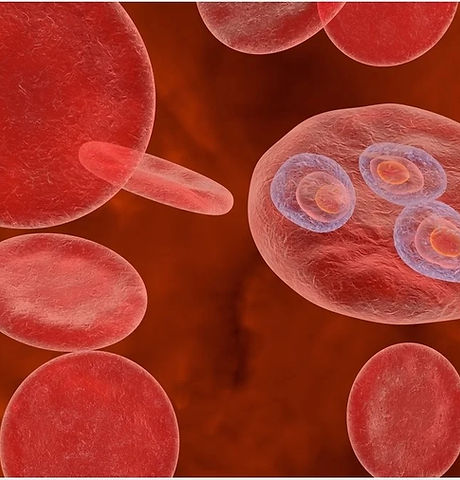
MARIA REBELO
BIOMEDICAL RESEARCH
From parasite biology to translational solutions against malaria and beyond
A LITTLE ABOUT MARIA
Maria is a Microbiologist born in Madeira Island and currently based in Lisbon. She is passionate about parasitology and aims to develop innovative approaches to fight malaria, with the hope of contributing to a malaria-free world.
RESEARCH EXPERIENCE AND INTERESTS
Maria Rebelo’s career has been dedicated to developing innovative tools to combat infectious diseases, with a primary focus on malaria and COVID-19. During her MSc and PhD, she pioneered a hemozoin detection method for monitoring antimalarial drug resistance, validated across models and patient samples in Gabon. This work laid the foundation for improved approaches to studying drug effects. As a postdoctoral researcher Maria worked in one of the world’s leading center for malaria volunteer infection studies at QIMR (Brisbane, Australia), and she discovered that non-viable parasites persist in circulation after treatment, reshaping how antimalarial drug efficacy is evaluated in humans. She later expanded her expertise to COVID-19, demonstrating that RNA degraders can impair viral replication and that de novo proteins can both prevent and protect against SARS-CoV-2 infection in mouse models. Currently, supported by a “la Caixa” Junior Leader Fellowship, FCT-RESTART, and FCT-Exploratory funding, Maria is establishing her independent research line, pioneering de novo proteins as novel therapeutic approached for malaria and exploring novel aspects of parasite biology.She has recently been awarded a “la Caixa” Junior Leader Fellowship, an FCT-RESTART grant, an FCT-CEEC position, and funding from FCT-Exploratory Projects. With this support, she is now establishing her own line of research, pioneering the use of de novo proteins for malaria treatment and investigating novel aspects of parasite biology.




Mission
The mission of Maria Rebelo’s research is to advance innovative strategies for tackling infectious diseases through the integration of fundamental parasite biology and translational research. Building on expertise in malaria and viral pathogens, the lab focuses on developing novel therapeutic approaches, including de novo protein decoys and improved methodologies for evaluating drug activity. Her research program is driven by the goal of generating mechanistic insights into host–pathogen interactions and translating these findings into tools that can inform drug and vaccine development. By fostering a rigorous, collaborative, and interdisciplinary environment, her laboratory aims to contribute to the development of next-generation interventions that reduce the global burden of infectious diseases.